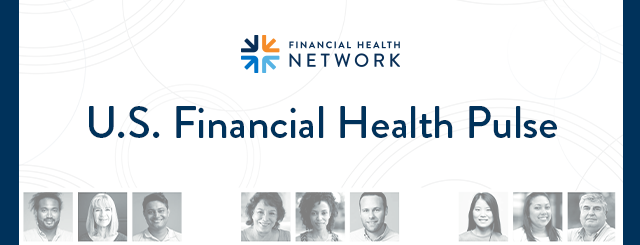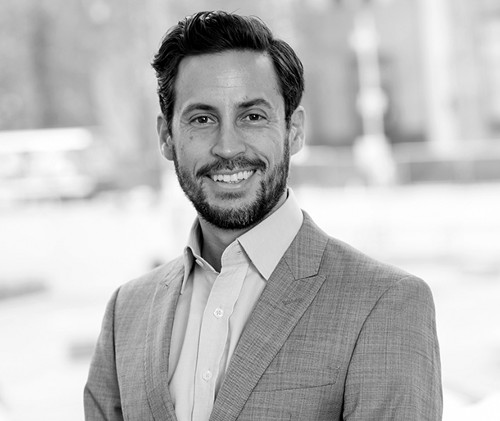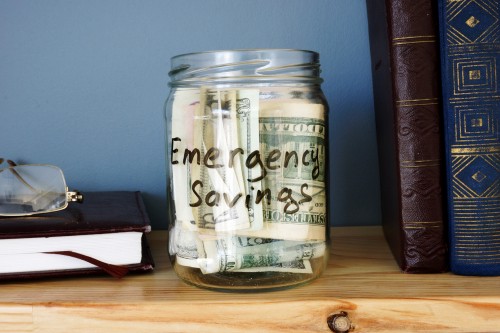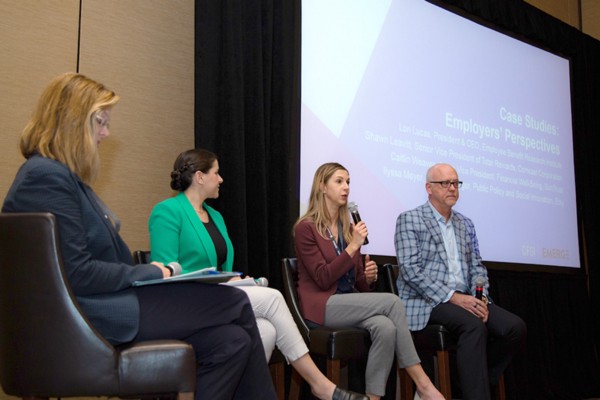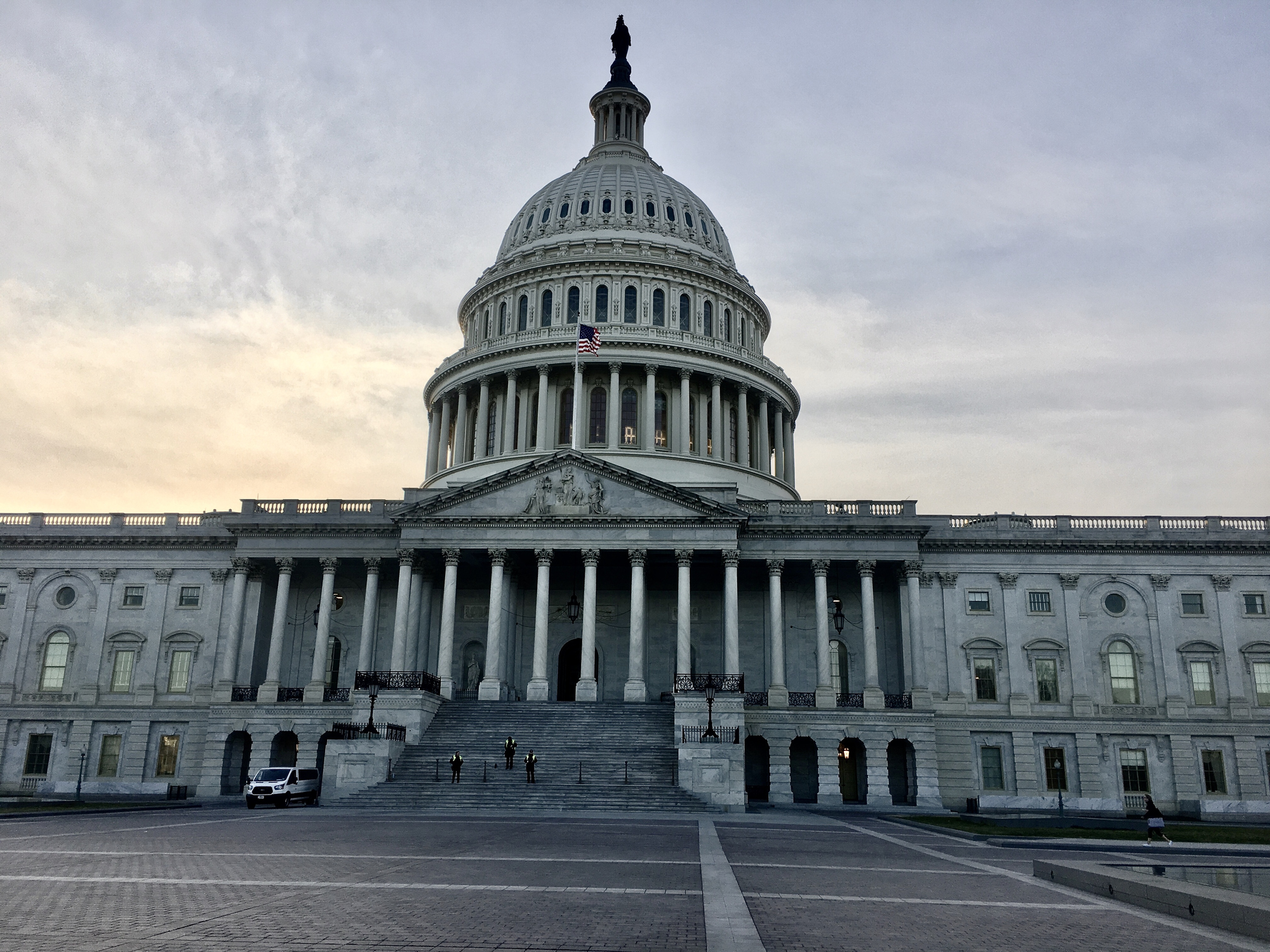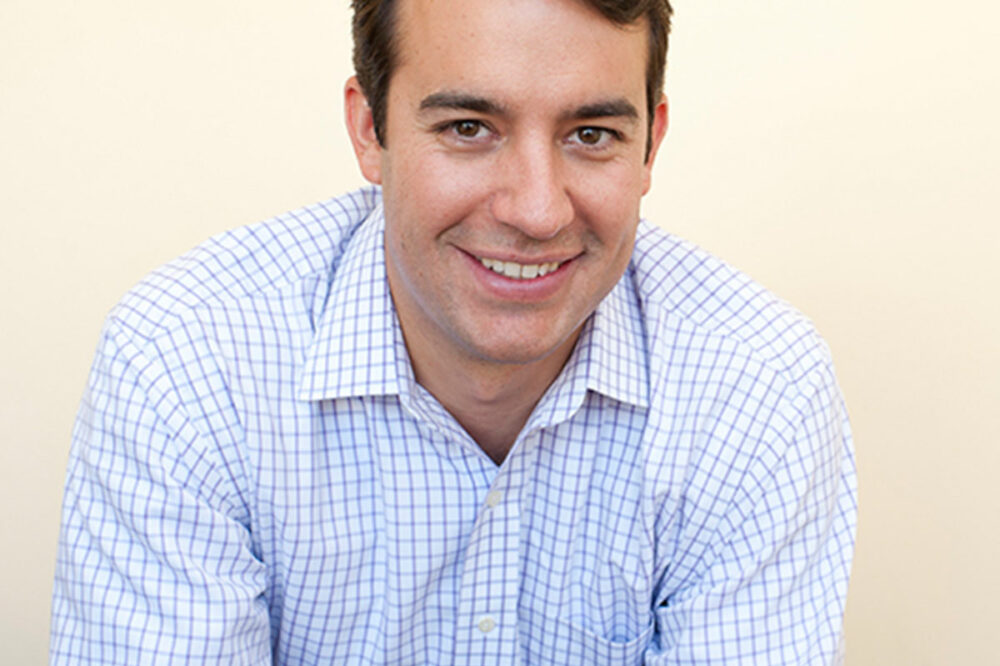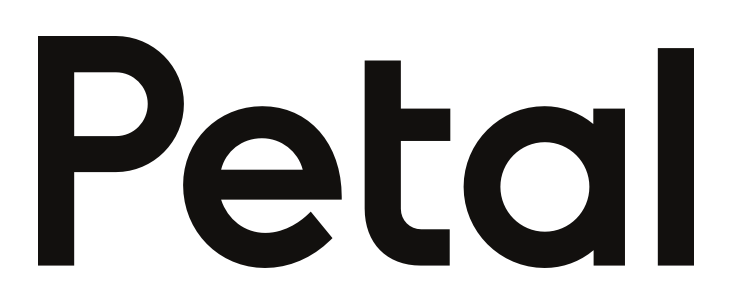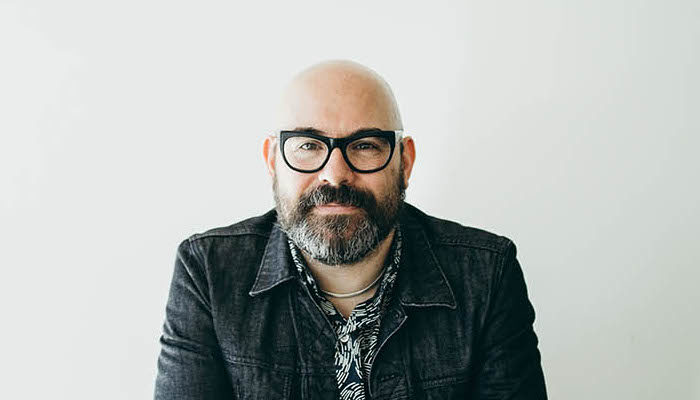Financial Solutions Lab Announcements
Fintech has a powerful role to play in solving financial health challenges in a more inclusive way.
The Financial Lives of Older Adults in the Era of COVID-19
By Jacquelyn Reineke, Manager and Heidi Johnson, Director, Financial Health Network There is no denying that the COVID-19 crisis has turned the world upside down. Everyone has had to deal with daily changes to their routines and come to terms with a new normal, but vulnerable populations — in particular, aging Americans — have faced the most devastating consequences…
How Insurance Must Evolve to Serve Customers in Crisis
By Sarah Parker, Senior Director, Financial Health Network In the midst of the economic crisis brought on by the COVID-19 pandemic, consumers are realizing that insurance is not a nice-to-have; it’s a must-have. Life insurance carriers report a marked increase in interest from new customers who want to purchase policies, as people recognize the importance…
A Broken Criminal Justice System Impacts Financial Health, Too
By Josh Sledge, Senior Director and Arjun Kaushal, Associate, Financial Health Network The tragic murder of George Floyd at the hands of police has once again brought the inequities of the criminal justice system into focus. The violence captured on film has rightfully drawn a passionate response, as protestors demand justice for Floyd and an…
Speaking Out About Racial Discrimination: A Letter To Our Staff
This blog by Jennifer Tescher was shared with the Financial Health Network staff in the wake of the murder of George Floyd at the hands of police and the protests and civil unrest that have followed: Putting emotions into words is hard right now.
New Pulse Data: Those Who Need COVID-19 Stimulus Most Are the Last to Get It
By David Silberman, Senior Advisor, Financial Health Network The COVID-19 pandemic has caused widespread economic dislocation. Tens of millions of Americans have lost their jobs, at least temporarily, and millions more have seen their hours drastically cut. Those job and wage losses have fallen disproportionately on low-wage workers, especially blacks and Latinos, who are concentrated…
Measuring Financial Health in the Middle of a Pandemic
To measure the financial health of customers amid the economic devastation of COVID-19, organizations can leverage their own existing data and evaluate the rate of change in these metrics over time.
Fintech for All: Closing the Generation Gap in a COVID-19 World
For older generations, who face the greatest health risks from COVID-19, the need to shift their financial management systems online is critical, but several key barriers deter older adults from adopting fintech products and services.
Digital Backup: Fintech Solutions to Support America’s Most Vulnerable
More than 33 million Americans have filed for unemployment since March – a new record. Yet even during the economic expansion of the last decade, the U.S. Financial Health Pulse shows that only 29% of Americans are considered financially healthy.
How to Manage Money in a Pandemic: A Behavioral Research-Based Approach
We have compiled behavioral science research on financial decisions to understand the challenges people may be facing and share our tips for how to spend savings and rework bills and debt to support financial health in a pandemic.
Bearing the Brunt of COVID-19: Fears and Challenges of Financially Vulnerable Americans
By Thea Garon, Senior Director and Andrew Dunn, Manager, Financial Health Network The COVID-19 pandemic and its economic fallout are likely to have the largest impact on those who are already struggling financially. Survey data from the University of Southern California and the U.S. Financial Health Pulse show that Financially Vulnerable Americans believe they are…
Strengthening the Student Safety Net During COVID-19
Even before the pandemic, the lives of financially struggling students were overwhelmingly complex. For financially vulnerable students, a disruption this large can have devastating long-term impacts, including failure to re-enroll once the pandemic ends.
Retirement Readiness: A Generational Perspective
By Steve Arves, Manager, Financial Health Network The economic fallout from the COVID-19 pandemic has taken an exacting toll on many people’s retirement savings. Over the last month, the stock market took its largest dip in years, wiping out trillions of dollars in savings overnight. While it’s too soon to say whether these losses will…
#FinHealthMatters In the Workplace
There is also an opportunity to advance large employers’ understanding of the financial health challenges of workers, so they can better assess and implement financial health interventions in the workplace.
Not Working: Coronavirus Exposes a Broken System That Fails Workers
By Beth Brockland Senior Director, Financial Health Network March 26, 2020 Reading about the coronavirus pandemic feels a little bit like watching the world unravel before our very eyes. Every day brings new stock market lows and emergency measures. At the same time, people all over the country are demonstrating remarkable acts of humanity, practicing…
How Coronavirus Highlights the Insurance Gap for Gig Workers
Gig workers comprise a growing portion of the American workforce, with 1 in 10 U.S. workers relying on gig work as their primary source of income. Without adequate health insurance, many gig workers are unprepared to deal with the financial shock of a major injury or illness.
Are HSAs and IHRAs Good for Financial Health?
We used the Financial Health Network Compass Principles, a set of quality standards for products and services that support financial health, to assess HSAs and IHRAs.
Old Tricks, New Hat — Helping Americans Save in New Places
By Tanya Ladha, Senior Director at Financial Health Network Saving money is hard. So hard, in fact, that experts and academics have spent decades studying human behavior in an effort to make it easier for us, designing tricks and hacks that help us save — automating savings (think 401k retirement plans, created for us to set-it-and-forget-it), turning…
Optimizing Insurance and Financial Health
By Hannah Gdalman, Stevenson Fellow, Financial Health Network The recent open enrollment season means that for many of us, insurance is still top of mind. Other key moments such as the start of a new year, tax season, a new job, or family additions also provide a chance to reflect on insurance throughout the year….
Etsy Gets Creative: Helping Sellers Build Emergency Savings
By Chandni Ohri, Director, Financial Health Network In October 2019, Etsy signed on to BlackRock’s Emergency Savings Initiative as one of the inaugural partners because they recognize the challenge and importance of emergency savings for their sellers. Emergency savings is one of the building blocks to improving financial health. In fact, the recent U.S. Financial…
Fintech Founder Q&A: FutureFuel.io
With 70% of recent graduates going into the workforce saddled with student debt, Laurel Taylor saw a massive opportunity to rethink the way debt repayment, roundup, and refinancing was handled. Her startup, FutureFuel.io, uses machine learning and technology to reimagine how employers can use student debt repayment as an attractive recruiting and retention tool. Taylor […]
Trends in Financial Health: A Look Back on 2019
By Thea Garon, Director, Financial Health Network A few weeks ago, the Financial Health Network released new data from the U.S. Financial Health Pulse, a groundbreaking study designed to provide ongoing snapshots of financial health in America. Launched last year, the study draws upon consumer surveys and transactional data to assess how people are spending,…
The Future of Worker Benefits — Seeking the Next Generation of Workplace Wellness Solutions
By Jose Galindo, Workplace Financial Health Program Director, Financial Health Network I know first hand — as the founder and former CEO of moneymio.com, the first bilingual online platform dedicated to empowering Latinos in the United States with personal finance education — the challenge young fintech companies face, especially those who are focused on improving the financial health of…
Restoring Lost Tools, Reframing “Consumer Choice”
How do we open up our industry’s mindset and encourage banks to restore choice to consumers who want to retake control over their own financial behavior? I have two modest proposals for banks and credit unions to adopt the retronovations as part of their account offerings.
Announcing the Inaugural Partners: BlackRock’s Emergency Savings Initiative
The Financial Health Network joined forces with BlackRock and fellow nonprofit leaders Commonwealth and Common Cents Lab to address the savings challenge with a focus on finding corporate and organization partners that are committed to helping their employees, students, and communities change their savings behavior and thrive.
Fintech Founder Q&A: Onward
Ronnie Washington founded Onward to enable workers of all income levels to build financial security. Onward is a non-profit employer-based mobile savings and credit app that helps workers save effortlessly, build financial knowledge, and access responsible credit when emergencies strike. What the 401k is for long-term retirement savings, Onward is for short-term emergency savings. Ronnie […]
“Keep the Change”: How Bank of America Pioneered Roundup Savings
By John Thompson, Chief Program Officer, Financial Health Network A main goal of the BlackRock Emergency Savings Initiative is to build and integrate better savings tools to help individuals, especially those with low-to moderate-income, save. My team at the Financial Health Network has done extensive research on the current savings crisis to better understand the…
Something Old, Something New
The features of the financial services landscape that have brought today’s consumers convenience, reduced friction, and easily accessed revolving credit have now been with us for so long that we view them as fixed infrastructure. These gains have been accompanied by a loss of some of the tools and habits of mind that helped the grandparents and great-grandparents of today’s Millennials make it through two world wars and the Great Depression.
Deep Impact Through Collaborative Design
By Tanya Ladha, Director, Financial Health Network Financial technology companies, or fintechs, have altered consumer’s approach to their financial lives and financial health. Whether someone wants to save more, budget better, track their spending, or all of the above, there are many apps to support those efforts. Fintech companies can reach consumers anywhere, anytime, with…
Fintech Founder Q&A: Manifest
Anuraag Tripathi and Meenakshi Lakshmanan founded Manifest to create a seamless retirement transfer solution. Currently, most 401(k) transfers are done manually, which is a tedious process. It’s estimated that nearly 90% of people who start a transfer, don’t complete the pen, paper, fax, and mail process. With more people changing jobs, the number of accounts […]
Fintech Founder Q&A: MedPut
MedPut is an employee benefit program that provides 0% financing and bill negotiation services for out-of-pocket medical bills, with no impact to an employee’s credit score. Founders Stefan Sharma and Harsha Puvvada share their story. Q. What was the problem in the world that inspired you to start your company? We launched MedPut after observing […]
It’s a Brave New World: Harnessing the Power of Consumer Data to Improve Financial Health
Data plays an important role in improving consumers’ lives. While there are some risks to sharing data online, with the right safeguards in place, consumer data can provide powerful insights into people’s financial lives that financial service providers can use to develop products, programs, and solutions to improve their customers’ lives.
The Need is There: Secured Credit Cards as a Credit-Building Tool
By Laura Cummings, Director, Financial Health Network Amazon’s new Credit Builder secured card has ignited debate and dialogue about access to credit and the role secured cards can play in helping or harming consumers. We often hear about the millions of Americans who are deep in credit card debt, which points to the downside of…
Retronovation #4: Compartmentalizing Emergency Savings
Keeping a cache of savings for use in emergencies is hard. And it’s hardest for low and moderate income households whose incomes are often volatile and who thus need to tap emergency savings most often.
Retronovation #3: Installments to Tame Credit Card Debt
Installment loans’ appeal, in comparison to credit cards, are the fixed terms — a year or two or three — and equal payment amounts that automatically commit a borrower to paying off the debt.
Financial Health Network Extends Reach to Workplace Sector at EMERGE
Our research shows that employees are struggling financially and are looking to their employers for solutions. The EMERGE workshop represented a doubling-down on our commitment to working with employers, payroll and benefits providers, workers’ representatives, thought leaders, and policymakers to solve employees’ financial challenges.
Why Savings Interventions Are Important
As our research into measuring financial health shows, improving savings can unlock meaningful opportunities for people to improve their lives.
Scaling Innovative Solutions to Improve Financial Health: The Financial Solutions Lab
Despite a strong economy and low unemployment, the U.S. Financial Health Pulse shows more than half of Americans are struggling to pay their bills, save and remain financially stable. The problem is most acute for low-income individuals. Five years ago, the Financial Health Network launched the Financial Solutions Lab (FinLab) in partnership with JPMorgan Chase…
Fintech Founder Q&A: Honeybee
Ennie Lim, along with co-founders Benny Yiu and Max Zschoch, founded HoneyBee to help employees, regardless of credit history, access an extra week’s pay anytime to help manage unplanned expenses and build credit. The employee’s salary, employment tenure, and accrued paid time off (PTO) is the credit–securing loans with unused PTO is a differentiator in […]
Fintech Founder Q&A: Brightside
Callum King, along with Jacky Chiu, Shawn Leavitt, and Tom Spann founded Brightside, a personalized financial health platform providing employees with one place to go for all their financial needs. King shares why he and his team became fintech founders focused on creating solutions to specifically address workplace financial health challenges. Q. What inspired you […]
The U.S. Financial Health Pulse Goes to Washington
By Eric Wilson, Associate, Financial Health Network Despite economic indicators showing exceptional GDP growth and record low unemployment, the 2018 U.S. Financial Health Pulse shows that a vast majority of Americans are struggling with their financial health. In April, the Financial Health Network, along with Pulse funders and partners, took the findings of this benchmarking…
That’s a Wrap on EMERGE 2019
I had the privilege of serving as emcee at the 2019 EMERGE Financial Health Forum . Here are some highlights from the event.
Introducing the 2019 Financial Health Leaders
The 2019 Financial Health Leaders designation offers selected organizations additional benefits including peer-learning opportunities through Financial Health Network’s Financial Health Leaders Working Group, a group of industry influencers from Financial Health Network.
Making Financial Health more than a Buzzword
By Chandni Ohri, Director, Financial Health Network The financial services industry has been trying to regain the trust and rebuild the relationship with their customers after the fallout of the 2008 financial crisis. In their efforts to regain trust and engage with customers, financial institutions are launching new initiatives focused on financial health and wellness….
#FinHealthMatters Day should be every day, for everyone
In recognition of #FinHealthMatters Day, we reflect on our efforts to advance the cause of financial health which include research and building partnerships with leading organizations and our network of Members.
Fintech Founder Q&A: Resolve
Alex Mooradian and his co-founder Michael Bovee teamed up to figure out how to help people in debt better handle unexpected financial crises such as a loss of job or medical emergency. Together they built Resolve, a free platform that creates a custom debt relief plan for users. The platform connects people with an integrated […]
Financial Health and Higher Education: The Power of Assessing Student Financial Health
There is increasing awareness among community colleges and universities regarding the link between student financial health and academic success. In 2018, working closely with a cohort of innovative colleges and universities, Financial Health Network developed a new, holistic framework for not only understanding, but also assessing and measuring student financial health.
Fintech Founder Q&A: Petal
Too many Americans slip through the cracks of the banking system because they have poor or non-existent credit. For the founding team of Petal–Jason Gross, Andrew Endicott, David Ehrich, and Jack Arenas–figuring out a way to expand credit access for new-to-credit consumers was a driving force in building their business. Their company offers a safe, […]
New Data, New Insights: Releasing the 2018 Pulse Data Set
The data set contains responses from more than 5,000 individuals to 100+ questions about how people are spending, saving, borrowing, and planning.
Fintech Founder Q&A: Alice
As fellows at the Robin Hood Foundation, Paul Barnes-Hoggett and Avi Karnani spent a lot of time thinking about how to help people increase their income. The co-founders created Alice, software that helps people keep more of what they earn by automating pre-tax spending on everyday things like commuting, childcare, and healthcare. Barnes-Hoggett sat down […]


















